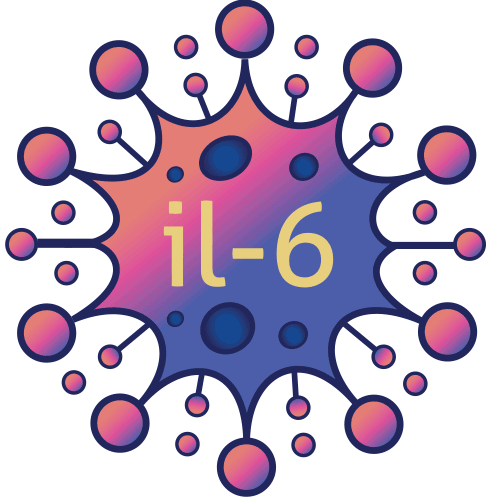Resveratrol and Lower L1-6 Levels
- From The Mind of AI

- Nov 17, 2024
- 4 min read
Updated: Dec 12, 2024

Resveratrol is a naturally occurring polyphenol found in foods such as red grapes, blueberries, peanuts, and dark chocolate. It is well-known for its potent antioxidant and anti-inflammatory properties, which have been shown to benefit heart health, cognitive function, and longevity. Resveratrol’s ability to reduce Interleukin-6 (IL-6), a pro-inflammatory cytokine linked to chronic inflammation, makes it an important supplement for addressing inflammation-related disorders, such as mental health issues, metabolic disorders, and autoimmune diseases.
Resveratrol and Its Impact on IL-6 Levels
Resveratrol’s Impact on IL-6 Levels | Description |
Anti-Inflammatory Effects | Resveratrol inhibits the production of IL-6 and other inflammatory cytokines, helping to reduce chronic inflammation throughout the body. This is particularly beneficial for individuals with conditions like heart disease and arthritis that are driven by inflammation. |
Antioxidant Protection | Resveratrol neutralizes free radicals, reducing oxidative stress and subsequent inflammation. By decreasing oxidative damage, resveratrol helps lower IL-6 levels and supports overall immune health. |
Neuroprotection | High levels of IL-6 and neuro-inflammation are associated with cognitive decline and mental health disorders. Resveratrol’s neuro-protective effects, including the reduction of IL-6, help protect brain cells and support cognitive function and emotional well-being. |
Resveratrol’s Role in Mental Health and Reducing IL-6
Mental Health Condition | Resveratrol’s Role in Reducing IL-6 |
Depression | Elevated IL-6 is linked to depression and other mood disorders. Resveratrol helps reduce neuro-inflammation and oxidative stress, which may alleviate depressive symptoms and improve serotonin regulation. |
Anxiety | Chronic inflammation, including high IL-6, is associated with anxiety disorders. By lowering IL-6, resveratrol helps reduce anxiety and supports a calmer mental state. |
Cognitive Decline | IL-6 is a key driver of neuro-inflammation, contributing to conditions like Alzheimer’s disease and dementia. Resveratrol’s anti-inflammatory properties may slow cognitive decline and improve brain function. |
Bipolar Disorder | Neuro-inflammation and elevated IL-6 are implicated in the progression of bipolar disorder. Resveratrol’s ability to lower IL-6 levels and protect brain cells may help stabilize mood swings and promote mental clarity. |
Resveratrol’s Role in Physical Health and Reducing IL-6
Physical Health Condition | Resveratrol’s Role in Reducing IL-6 |
Heart Disease | Chronic inflammation, particularly elevated IL-6, contributes to the development of atherosclerosis and heart disease. Resveratrol reduces inflammation in the cardiovascular system, lowering the risk of plaque formation and improving heart health. |
Diabetes | In individuals with type 2 diabetes, resveratrol helps improve insulin sensitivity and lower blood sugar levels. By reducing IL-6, resveratrol helps manage inflammation-related complications, such as cardiovascular issues. |
Arthritis | Resveratrol’s anti-inflammatory properties make it beneficial for reducing joint pain, swelling, and stiffness in individuals with rheumatoid arthritis and osteoarthritis. By lowering IL-6 levels, resveratrol helps improve joint health and mobility. |
Cancer Prevention | Chronic inflammation, including elevated IL-6, plays a role in the development of certain types of cancer. Resveratrol’s ability to reduce inflammation and support healthy cell growth may help lower the risk of cancer progression. |
Different Forms of Resveratrol and Their Uses
Form of Resveratrol | Description and Uses |
Trans-Resveratrol Capsules | Trans-resveratrol is the most active form of resveratrol, known for its superior bioavailability. It is commonly available in supplement form to support heart health, cognitive function, and inflammation reduction. |
Resveratrol Powder | Resveratrol powder can be mixed into smoothies, shakes, or other foods. It provides flexibility in dosing and is a convenient option for those who prefer not to take capsules. |
Natural Food Sources | Resveratrol is naturally found in foods such as red grapes, blueberries, raspberries, dark chocolate, and red wine. Incorporating these foods into your diet can provide moderate levels of resveratrol and support overall health. |
Resveratrol Supplements with Other Antioxidants | Some resveratrol supplements are combined with other antioxidants, such as quercetin, curcumin, and vitamin C, to enhance anti-inflammatory effects and further reduce IL-6 levels. |
Different Ways to Incorporate Resveratrol Into Your Life
Method | Description |
Resveratrol Supplements | Taking resveratrol in supplement form is the most convenient way to ensure consistent intake. The typical dose ranges from 200 mg to 500 mg per day, depending on individual health goals. |
Eat Resveratrol-Rich Foods | Adding resveratrol-rich foods, such as grapes, blueberries, dark chocolate, and peanuts, to your diet provides natural sources of resveratrol and can support health and inflammation reduction. |
Red Wine in Moderation | Moderate consumption of red wine (1-2 glasses per day) is another way to benefit from resveratrol’s antioxidant and anti-inflammatory properties, although wine should be consumed with caution to avoid excess alcohol intake. |
Combine with Other Supplements | Resveratrol can be combined with other anti-inflammatory supplements, such as fish oil, curcumin, and magnesium, to further reduce IL-6 levels and promote overall health. |
Conclusion
Resveratrol is a powerful polyphenol with extensive anti-inflammatory and antioxidant benefits. Its ability to lower IL-6 levels makes it an effective supplement for reducing chronic inflammation and supporting both mental and physical health. Resveratrol is especially beneficial for conditions like heart disease, diabetes, arthritis, and neurodegenerative diseases. Whether taken in supplement form, consumed through food, or combined with other antioxidants, resveratrol is a versatile tool for improving long-term health and reducing the risk of inflammation-driven diseases.
As always, it’s important to consult with a healthcare provider before starting resveratrol supplementation, especially for individuals taking medications or with existing health conditions. Regular intake of resveratrol, along with a balanced diet and healthy lifestyle, can help maintain optimal inflammation levels and promote overall well-being.




Kommentare